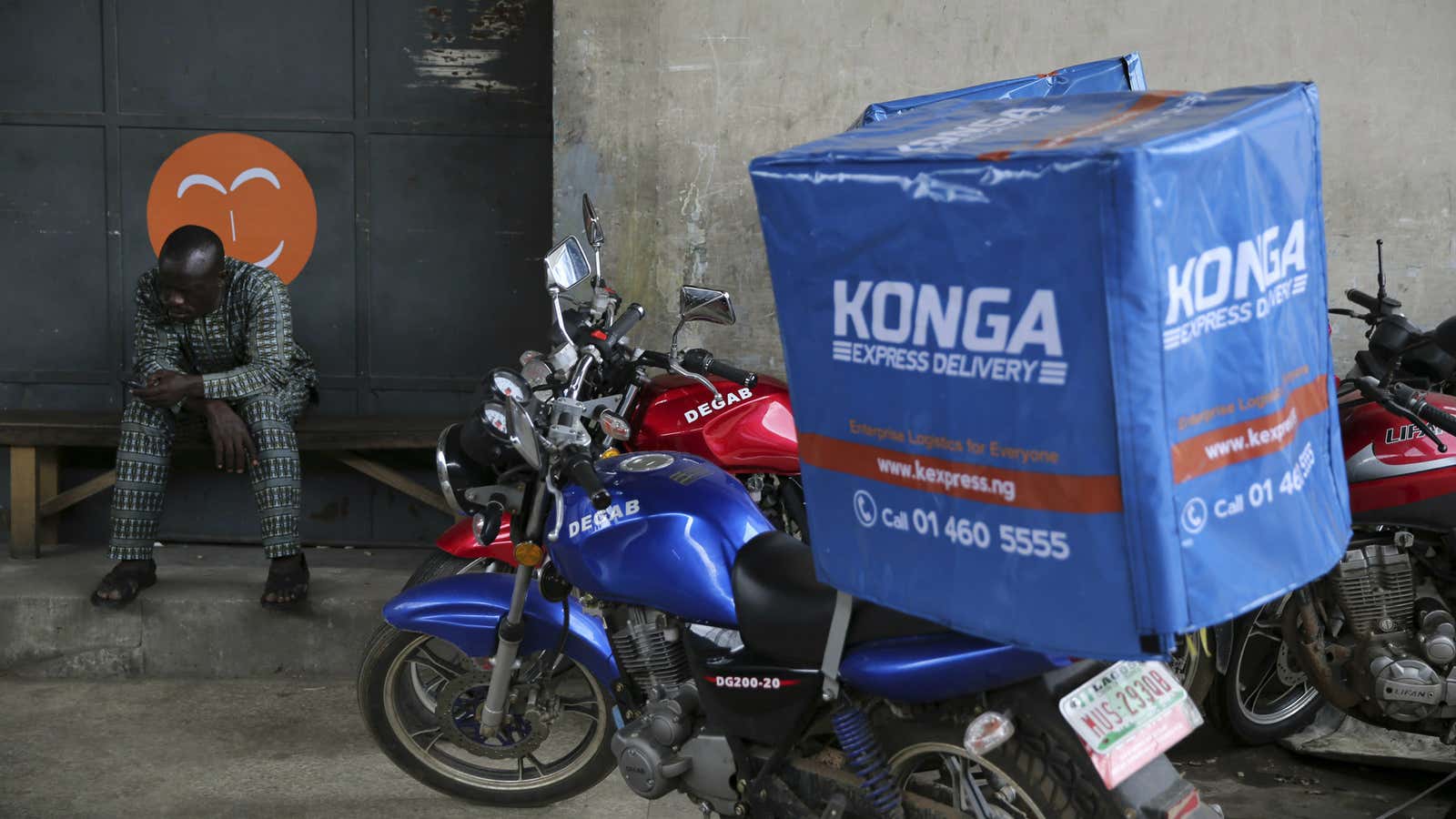This story has been updated.
Konga, one of Nigeria’s biggest e-commerce players, has sacked over 300 members of staff—around 60% of its total workforce, Quartz has learned from one of the affected staff employees, who asked not to be named.
CEO Shola Adekoya informed staff of the cuts today (Nov. 30) and said the company will adopt a leaner business model. Despite speculation that Sim Shagaya, the company’s founder and former CEO, could be returning to the role, Adekoya confirmed to Quartz that he’s staying on. Shagaya stepped down in Jan. 2016 two weeks after Konga sacked 10% of its staff.
Konga was launched in 2012. For much of its existence, the company has been locked in a battle over Nigeria’s e-commerce market with Jumia, a startup also launched in 2012 and owned by European startup incubator Rocket Internet. Both companies have struggled, despite significant funding, to establish online shopping as a viable business at scale in Nigeria, given the many logistics and supply chain difficulties in Africa’s largest economy.
Even though Jumia and Konga introduced Black Friday sales to Nigeria a few years back and had established it as their biggest shopping day of the year, last week’s Black Friday shoppers ended up with customers going offline to Shoprite and Spar for better deals.
Konga has raised over $75 million from investors including Kinnevik, a Swedish investment firm, and Naspers, Africa’s most valuable company. But even being one of the best funded start-ups on the continent hasn’t protected it from Nigeria’s economic woes. The country has only recently emerged from its first recession in 20 years and it endured a full year of negative growth in 2016. Despite improving its ranking on the World Bank’s latest Doing Business report, the realities for many local businesses suggest that times remain tough.
Much of what is known about Konga’s operations has been gleaned from the quarterly reports of its investors, particularly Kinnevik, which owns a 34% stake in the startup. Last year, Kinnevik’s second quarter report pegged Konga’s active customer base to 184,000 (pdf)—less than 1% of Nigeria’s population—suggesting the company was having difficulties growing its customer base. But its third quarter report noted (pdf) that Konga “reached break-even before overhead costs for the first time in September 2016,” and was “progressing well on its path to profitability.”
After first launching as an online mall in 2012, by 2014, Konga had morphed into a marketplace and began taking commissions on sales of products listed by independent merchants. By the end of last year, Konga had over 10,000 merchants. Adekoya apparently announced several changes to this model. While the merchants previously listed products for free on Konga’s marketplace, they will now have to pay “rental” fees. Konga will also close its warehouse service, which previously housed merchants’ products but KOS, the company’s delivery service, will remain operational, and remain available to merchants. The company will also end its payment-on-delivery option for customers.
